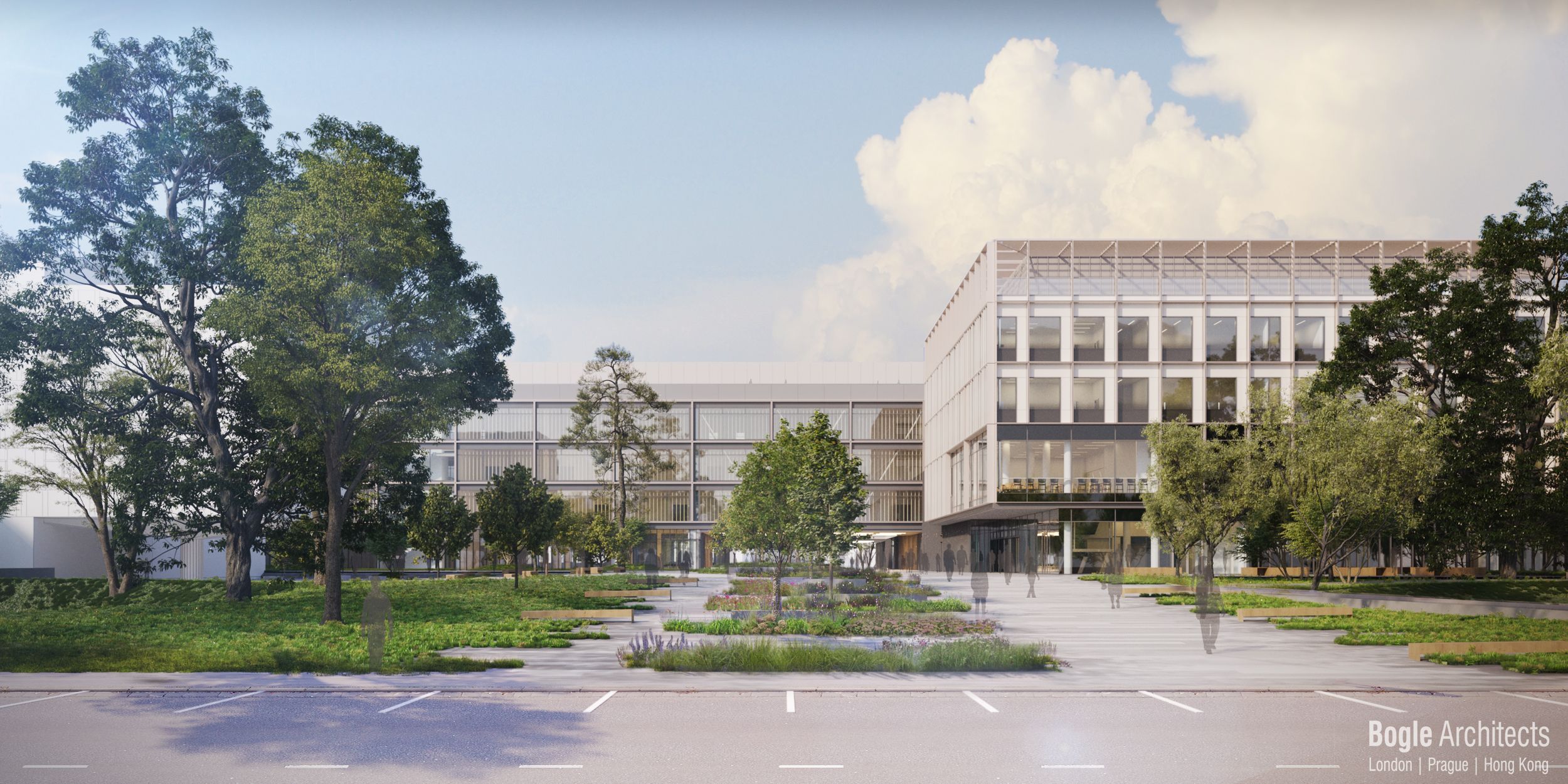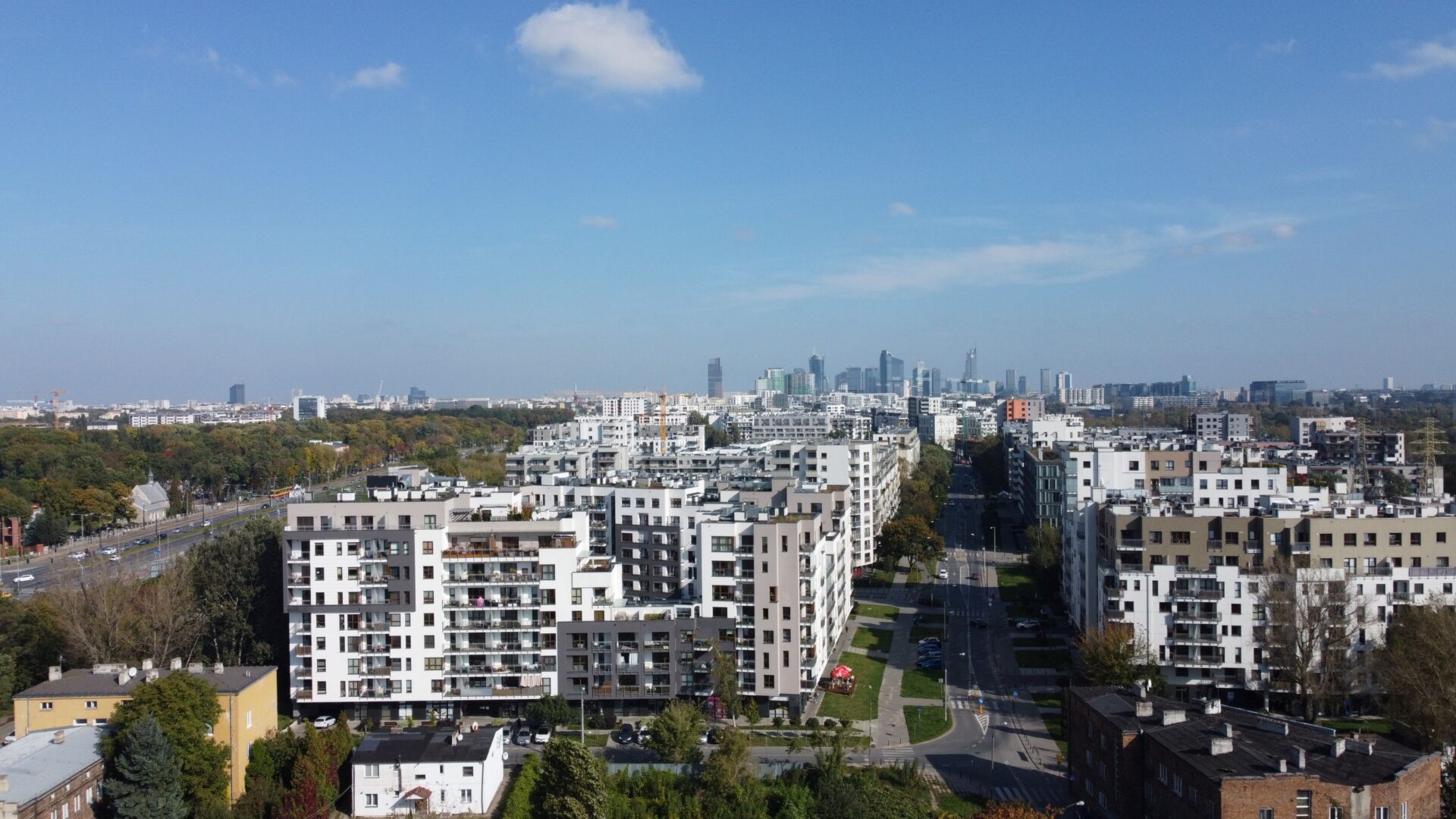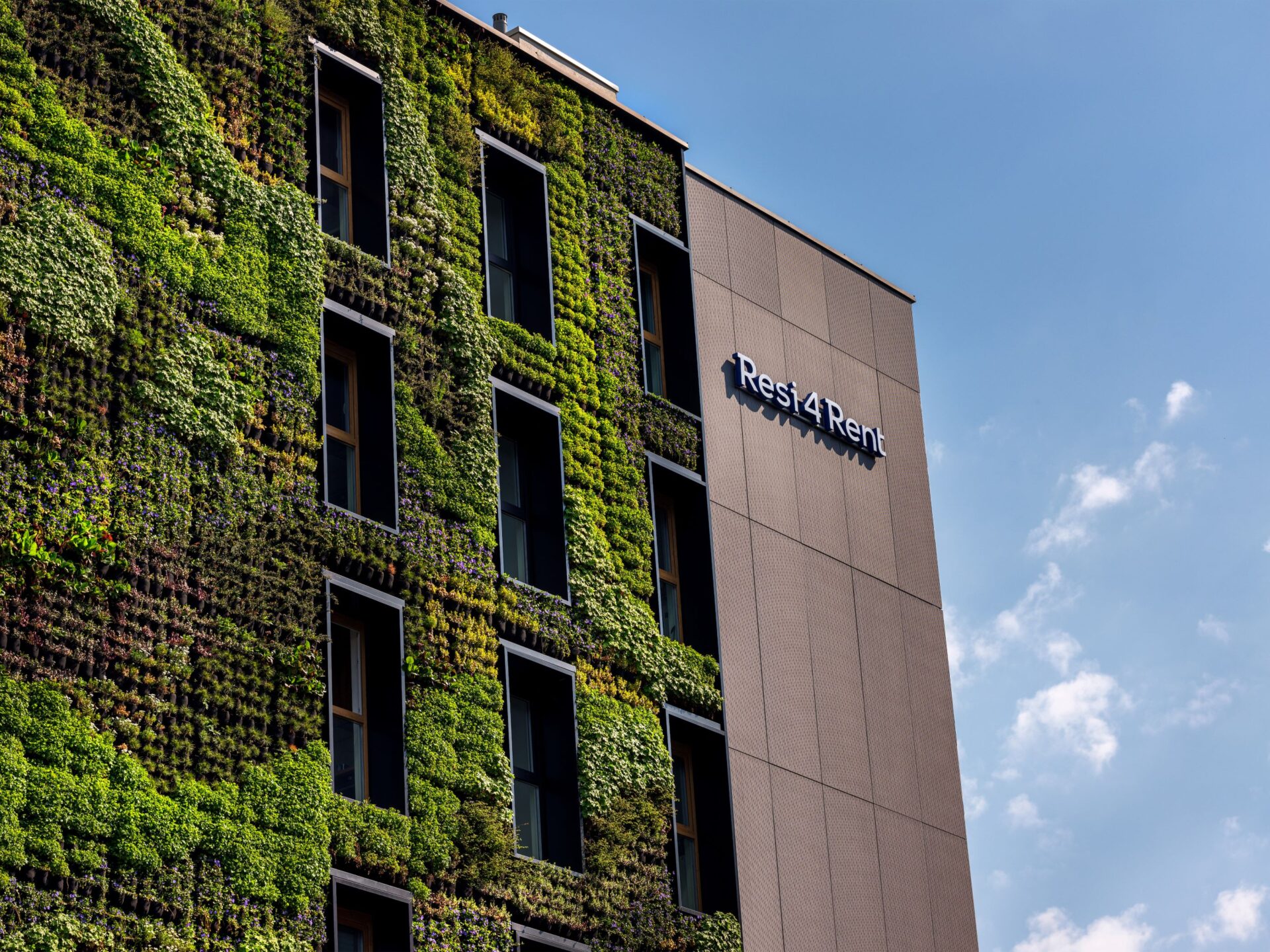Construction of a new campus for the Faculty of Medicine and Pharmaceutical Faculty of Charles University in Hradec Králové is now underway. Designed by Bogle Architects, the campus, named MEPHARED II, will provide space for advanced research and development in the areas of medicine, pharmaceutical and other biomedical sciences, while also contributing to the provision of high-quality medical care to patients in the Czech Republic.
Construction works have started on this first-of-its-kind educational centre in the Czech Republic, integrating education, research and development for the faculties. MEPHARED II will also foster direct connections with clinical practice at the Faculty Hospital of Hradec Králové and the Faculty of Military Medicine of the Defense University, whose students study at Charles University’s Medical and Pharmaceutical Faculties.
Covering over 69,000 sqm with a capacity for up to 3,600 students, MEPHARED II will create contemporary spaces designed to boost scientific excellence as well as interdisciplinary cooperation. Spaces for teaching, research and administration will take account of the latest thinking in the design of functional study and research environments.
“In our work with Charles University for the MEPHARED II project, we are answering many of the biggest priorities of university students and staff,” says Viktorie Souček from Bogle Architects. “We have designed a vibrant sequence of contemporary spaces, with increased interior daylight offering a sense of well-being throughout the building, both in teaching areas and elsewhere. Landscaping is also being implemented to enhance the project’s harmonious relationship with nature.”
Bogle Architects’ design for MEPHARED II corresponds with the wishes of students and staff revealed in a recent survey among a representative sample of 140 respondents who said existing Czech university spaces do not meet 21st-century requirements. Respondents suggested that the brief to designers of such buildings did not take users’ needs into account and claimed that unsuitable working environments make a significant impact on their productivity.
“We have been aware of concern from students and staff about the quality of existing university spaces,” Souček adds. “Our functional approach to contemporary design at MEPHARED II isn’t just something that’s needed in universities. At Bogle Architects, we are continuously striving to improve the user experience, whether in educational projects or in other types of development. In this project, we are also focused on cutting emissions and reducing energy loads to help protect the planet.”
In the survey conducted by Ipsos in April 2023, four out of ten respondents said they believe their physical environment affects the quality of their work. 81 percent of students said they are influenced by their surroundings while studying. Yet 51% of respondents said they believe designers did not take their needs into account when designing the spaces they use.
42 percent of respondents believe their facilities do not meet 21st-century standards. Expectations for new university premises cited by respondents include copious space and natural daylight, barrier-free access, and spaces for relaxation. Implementation of modern technology is also key, including stable Wi-Fi connections, well-placed sockets, and charging stations for portable devices.
Bogle Architects’ design for MEPHARED II answers these modern requirements, resulting in the creation of a state-of-the-art facility enabling students and staff to achieve more.
“MEPHARED II will help transform our teaching, research and development capabilities,” says Professor Jiří Manďák, Dean of the Faculty of Medicine in Hradec Králové. “Teaching in some academic subjects at our faculties is very closely interrelated, and this development will provide us with space to further interconnect our activities, both organisationally and spatially. This will lead to better results and even greater successes for students, teachers, researchers, and administrative staff.”
With construction on site now underway, MEPHARED II is expected to be completed and ready for use in the second quarter of 2026.







